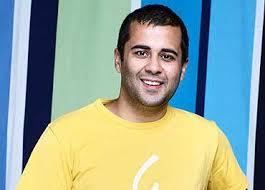
“One day I will find the right words, and they will be simple.”
― Jack Kerouac, The Dharma Bums
I was given an essay to write on the Himalayas when I was nine. The kind of essays young children write in India i.e. Write ten lines on the Himalayas” kind of essay. My father with an enthusiasm of teaching his children for the first time in his life, dictated those ten lines saying “ This essay would help you in your Indian Admistrative exam as well”. I ended up securing the highest marks in this essay with the teacher proclaiming that language wise this was the best essay she had seen. And, that, precisely was the problem. Language of the essay. The language was so flowery, so complicated that one would need to sit down with a dictionary to understand it.
The reading population in India has a distinct divide. The people who read “good” literature and the rest of the population who doesn’t. The former category has an air of superiority around them and considers themselves more literary aware than the latter. The “literary” types can be seen reading, “The God of Small Things” or “Ground Beneath Her Feet”, their mini – libraries stacked with books written by Amartya Sen, Julius Verns , Amitav Gosh and of late Arvind Adiga . Their coffee table would prominently display an “Argumentative Indian” or “Lady Chatterley's Lover” or any other book that is either a classic or has won a Nobel , a Booker or at least been nominated for an Orange Book. The rest of the books written by other”so called” writers are not worth a glance. They lack the literary streak and therefore are relegated to the dusty corners of their homes where no one would frequent or they are not bought at all as those books represent the “downfall” of writings in English,
The authors of such books belong to a certain strata of Indian society. The strata that reside in the metropolitan cities of India, has a defined or confused political leanings, but leanings none the less, have gone to the elitist universities and colleges in India and/ or abroad and pepper their conversation with sentences like “The subaltern discourse of caste in modern India from a feminist lens”. The readers of such books are equally elitist.
In the bid of writing books filled with complicated metaphors and words that no one uses in real life and attending the Jaipur Literary fests and commenting upon the “ Abysmal state of the Indian Literary Scenario”, authors and readers as well, forget that there is an India that speaks English and an India that doesn't . The India that doesn’t speak English is found everywhere. In the small town of Hisaar, in the shanties of Mumbai, near the ghats of Varanasi and in the small shops selling banana chips in Tumkur. This India aspires to speak English, not because it is the lingua franca of the world but because speaking English would secure them a job with a slightly higher pay.
When a person does write a book that with its simple, uncomplicated English talks about Chandani Chowk, Juhu Chopati, the Gujarat riots rather than the Empire State Building or about the partition of India, he is scoffed upon. Meet Chetan Bhagat, the man who changed the landscaped of Indian writing. Bhagat's phenomenal success (with six novels shifting seven million copies) due to foreign sales and profile –not just in terms of people from all sections of society reading the books, connecting with them but also film makers adapting the books into highly successful movies. He is one of the rare authors who has established a connect with the non- Anglophone sections of the Indian society. Why is Bhagat’s success not recognized by the London's literati which has made the likes of Salman Rusdie and Arundathi Roy sit on a pedestal? Elitist Anglophone writers who might not even live in India anymore, considered the “authentic” voice of the country vis- a vis Bhagat who actually talks about the issues that concern the youth of India? .
Bhagat is often criticised for writing bad English and for his apparent lack of sophistication. On closer inspection one would find that it is not so much the quality of English that is criticised but the editing of the book. There are books and there are books. Each book has its unique appeal and caters to the sensibilities of a particular section of society. Chetan Bhagat ‘s audience is very different from the ones that Chitra Banerjee Diwakaruni, Anju Sundareshan, Salman Rusdie and Arvind Agida write for. For Bhagat’s audience does not think in English. The English they speak is a translated version of what they think in their first language. To cater to a population like this he writes in a language that they can connect with. His English does not tax your brain unlike a few books that I know for which you would have to pause after every half an hour to digest what the paragraphs you just read actually mean. As for the “bad “editing, well why blame him for editing? His job is to write, not to edit. The fact that a renowned publishing house like Rupa has been publishing his books should be evidence enough of the popularity he commands. Constant criticism of his English is just another fact of the gulf that is created between the English speaking population and one that regards English as an aspirational language. A language that would secure a bright socio- economic future for them. The snobbery of this group who writes for the elite and are fellow brethren takes them away from the realities of the world they write about. India is more often than not either depicted from a rose tinted glass where poverty is glorified or a lens which makes you see India as a classic “Slumdog” country. Both views are however from outside the mall, hardly ever stepping in it to feel what reality smells like.
Bhagat has broken every mould that defines a typical writer. someone from outside their liberal arts, politically charged atmosphere of an educational institution that proclaim capitalism as the source of all evils and socialism as a solution to all the problems faced by the world. He is an engineer having an MBA degree, both from the top most reputed institutes in India;. institutes that more than half of the country’s population aspires to send their children to. However renowned these institutes are, in the compartmentalized thinking of the people who have “discourses” on poverty and not discussions, people like Bhagat should either restrict themselves to teaching mathematics or selling soaps or at the best being the Head of Marketing. A man like him in the opinion of the literati does not have the right to break the rank so diligently built and guarded by the hand full of people who think they are the cultural and literary torch bearers of Indian society. Chetan Bhagat has over stepped his boundary and this has shattered the assumption of the watch dogs of the Indian literature scene.
If the “pedestrian” style of writing that Bhagat is often accused of sets a trend of campus novels in India, if the lack of literary satisfaction that is often cited as a case to bring his credentials down as a writer, make the youth relate to what he writes and if being dubbed as the Rakhee Sawant of Indian literature makes someone feature in the Time’s magazine’s 100 most influential people, why would you want to not be in the shoes of Chetan Bhagat.








7d88.png?itok=KI18yp23)

Add new comment